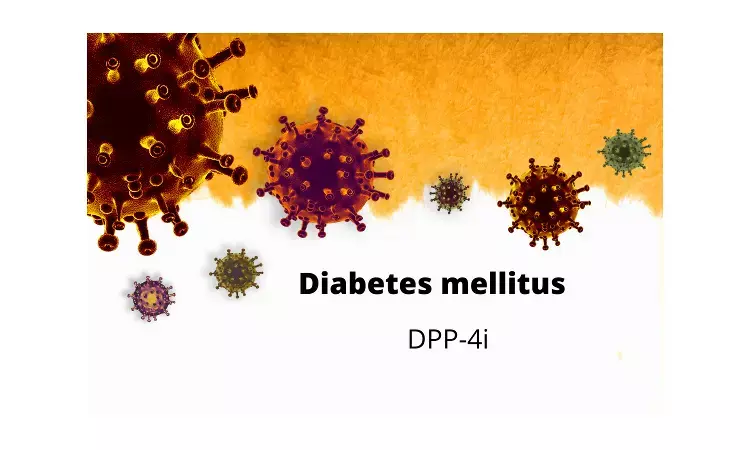- Home
- Medical news & Guidelines
- Anesthesiology
- Cardiology and CTVS
- Critical Care
- Dentistry
- Dermatology
- Diabetes and Endocrinology
- ENT
- Gastroenterology
- Medicine
- Nephrology
- Neurology
- Obstretics-Gynaecology
- Oncology
- Ophthalmology
- Orthopaedics
- Pediatrics-Neonatology
- Psychiatry
- Pulmonology
- Radiology
- Surgery
- Urology
- Laboratory Medicine
- Diet
- Nursing
- Paramedical
- Physiotherapy
- Health news
- Fact Check
- Bone Health Fact Check
- Brain Health Fact Check
- Cancer Related Fact Check
- Child Care Fact Check
- Dental and oral health fact check
- Diabetes and metabolic health fact check
- Diet and Nutrition Fact Check
- Eye and ENT Care Fact Check
- Fitness fact check
- Gut health fact check
- Heart health fact check
- Kidney health fact check
- Medical education fact check
- Men's health fact check
- Respiratory fact check
- Skin and hair care fact check
- Vaccine and Immunization fact check
- Women's health fact check
- AYUSH
- State News
- Andaman and Nicobar Islands
- Andhra Pradesh
- Arunachal Pradesh
- Assam
- Bihar
- Chandigarh
- Chattisgarh
- Dadra and Nagar Haveli
- Daman and Diu
- Delhi
- Goa
- Gujarat
- Haryana
- Himachal Pradesh
- Jammu & Kashmir
- Jharkhand
- Karnataka
- Kerala
- Ladakh
- Lakshadweep
- Madhya Pradesh
- Maharashtra
- Manipur
- Meghalaya
- Mizoram
- Nagaland
- Odisha
- Puducherry
- Punjab
- Rajasthan
- Sikkim
- Tamil Nadu
- Telangana
- Tripura
- Uttar Pradesh
- Uttrakhand
- West Bengal
- Medical Education
- Industry
DPP4 inhibitors reduce mortality risk in COVID-19 patients with diabetes: Study

Diabetes is one of the most significant chronic diseases that increases the severity of COVID-19 and the associated risk of mortality in the pandemic. Dipeptidyl peptidase-4 inhibitors (DPP-4is) are a class of medications that are used due to their anti-inflammatory, anti-fibrotic, and anti-adipogenic properties.
A new study by Rifat Emral and team revealed that there is an association between DDP-4is use and reduced mortality in people with Type 2 Diabetes Mellitus( T2DM) who were tested positive for COVID-19. Further Less frequent intensive care unit admission and/or mechanical ventilation were also observed among patients using DPP-4 inhibitors.
The findings of the study are published in Diabetes Therapy.
The objective of the study was to investigate the effect of pre existing treatment with DPP-4i on COVID-19-related hospitalization and mortality in patients with type T2DM.
The study was a multicenter, retrospective cohort study conducted using patient data extracted from the Turkish National Electronic Database. All patients who tested positive for COVID-19 (PCR test) between 11 March through to 30 May 2020 were screened for eligibility (n = 149,671). Following exclusion of patients based on pre-determined inclusion criteria, patients with T2DM using a DPP-4i or glucose-lowering medications other than a DPP-4i were compared for mortality and hospitalization. The propensity score method was used to match age, gender, micro- and macrovascular complications, and medications in the two groups. Independent associates of mortality were analyzed using multivariable analysis on the whole T2DM population.
The results of the study were
• A total of 33,478 patients with T2DM who tested postive for COVID-19 who met the inclusion criteria were included in the analysis. Median (interquartile range) age was 54 (22) years and 42.4% were male.
• Of these, 9100 patients using DPP-4is (n = 4550) or other glucose-lowering drugs (n = 4550) were matched in two groups. After matching, analysis revealed a lower mortality in the DPP-4i group (9.5 vs. 11.8%; p < 0.001).
• In the multivariable model, the use of DPP-4is showed lower mortality in the whole sample, while age, male gender, computed tomography finding of COVID-19, obesity, low glomerular filtration rate, and an insulin-based regimen also predicted increased risk of death with an odds ratio [OR] 0.57, 95% confidence interval [CI] 0.35–0.91; p = 0.02.
• There was no association between the preexisting treatment with DPP-4is and COVID-19-related hospitalization in the matched analysis or multivariate model.
• The rate of admission to the intensive care unit and/or mechanical ventilation favored the DPP-4i group (21.7 vs. 25.2%; p = 0.001), although this association became saturated in the multivariate analysis (OR 0.65, 95% CI 0.39–1.08; p = 0.099).
Emral and team conveyed that these findings suggested that " this study demonstrate an association between DDP-4i use and reduced mortality in people with T2DM who tested PCR positive for COVID-19."
Reference:
Emral, R., Haymana, C., Demirci, I. et al. Lower COVID-19 Mortality in Patients with Type 2 Diabetes Mellitus Taking Dipeptidyl Peptidase-4 Inhibitors: Results from a Turkish Nationwide Study. Diabetes Ther 12, 2857–2870 (2021). https://doi.org/10.1007/s13300-021-01133-8
Medical Dialogues consists of a team of passionate medical/scientific writers, led by doctors and healthcare researchers. Our team efforts to bring you updated and timely news about the important happenings of the medical and healthcare sector. Our editorial team can be reached at editorial@medicaldialogues.in.
Dr Kamal Kant Kohli-MBBS, DTCD- a chest specialist with more than 30 years of practice and a flair for writing clinical articles, Dr Kamal Kant Kohli joined Medical Dialogues as a Chief Editor of Medical News. Besides writing articles, as an editor, he proofreads and verifies all the medical content published on Medical Dialogues including those coming from journals, studies,medical conferences,guidelines etc. Email: drkohli@medicaldialogues.in. Contact no. 011-43720751


